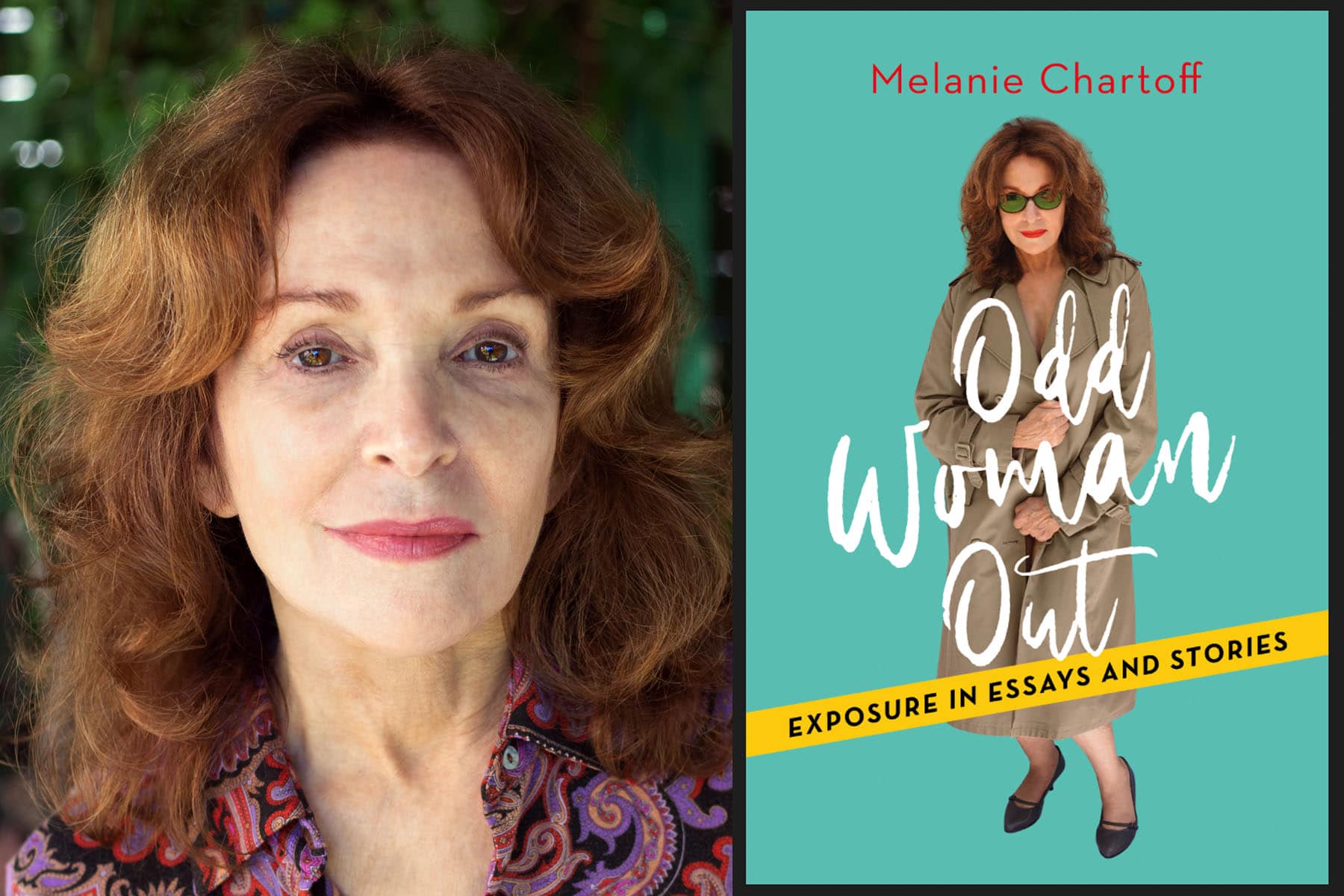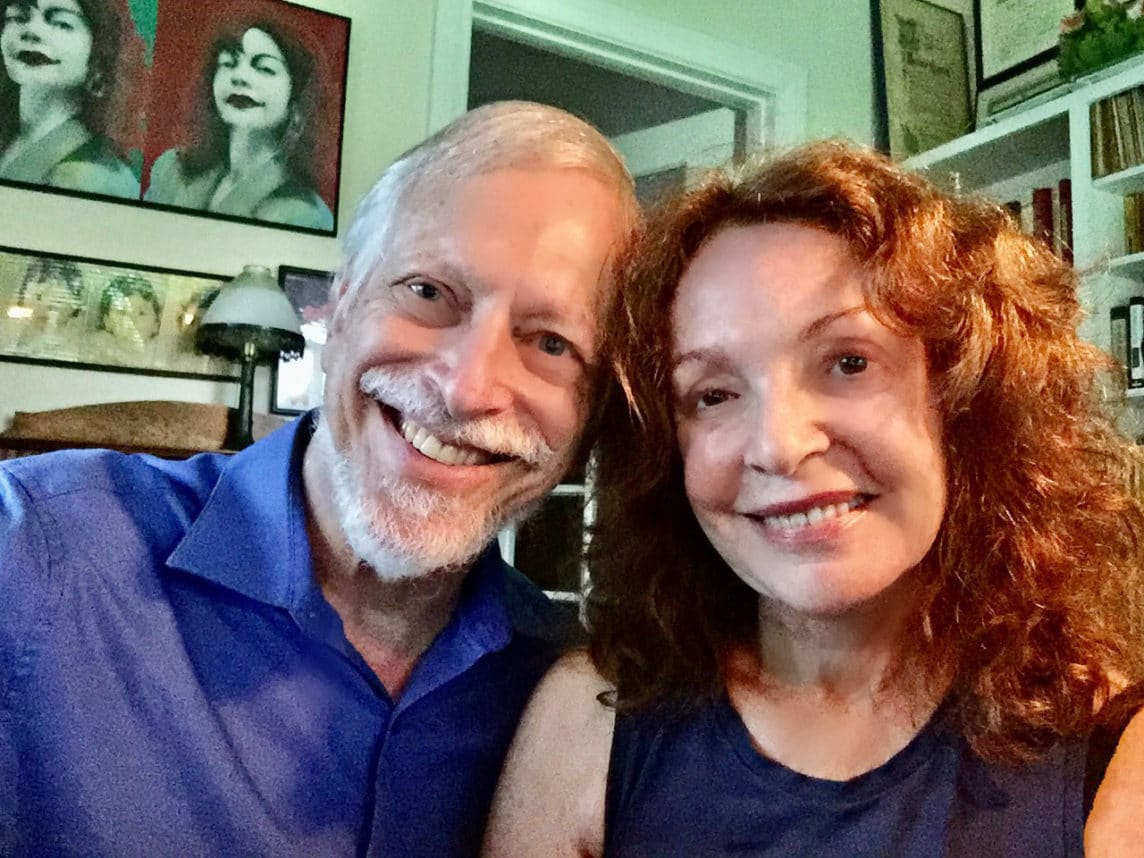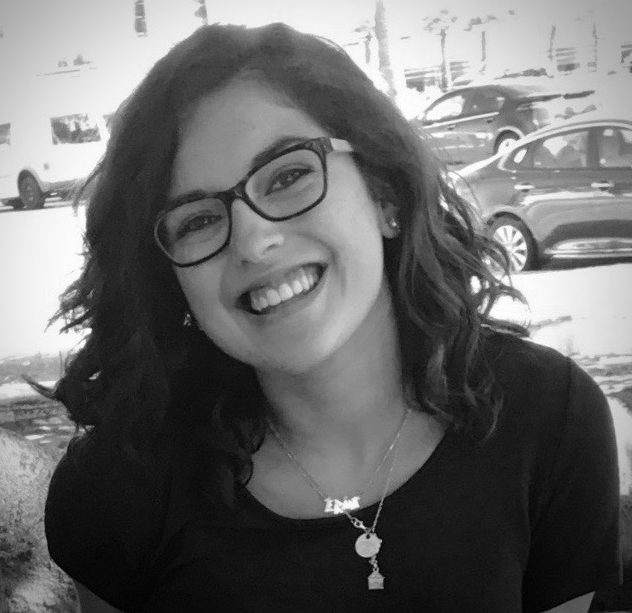
Melanie Chartoff never intended on writing a book. With a multi-decade career as a voice-over, TV, film and stage actor, writing her life’s journey on a page felt unnecessary. But after performing a musical memoir four years ago at Joshua Tree Comedy Festival —that included songs and a bit about sexual awakenings at the gynecologist— she realized her musical stories were merely essays waiting to be organized.
She took a few of those stories on the road to Comedy Central’s “Sit n’ Spin” show, and Jewish Women’s Theater, now The Braid. Now newly published on Feb. 2, “Odd Woman Out: Exposure in Essays and Stories” (Books Fluent) is on bookshelves everywhere.
In her debut memoir, Chartoff discusses her Broadway and television careers, which led to her roles on “Fridays,” and “Rugrats,” to name a few, and the neuroses that come with navigating the spotlight. She also exposes her family stories, sexuality, feminism and finding love in her 60s. For the self-described, “lapsed Ashkenazi Jewess who loves the culture (and people) but doesn’t love the religion,” the book is also filled with Jewish anecdotes and life lessons learned, including some from a guru she met in the Catskills.
Chartoff spoke candidly with the Journal via Zoom about the book. This interview has been edited for clarity.
Jewish Journal: When did you start writing this book?
Melanie Chartoff: I actually sat down and decided to write the book two years ago. Then it took me around a year to finish. I had a couple of different publishers here and there. The pandemic slowed things down. It’s nice to have something I can hold onto.
Most of my work is so ephemeral. It goes out over the television airways or it goes out to the audiences in the theaters, but here’s a tangible thing I can hold in my hands.
JJ: The book is very sexual. It’s great. Can you talk about why you wanted it that way?
MC: It’s bizarre. That’s why I called it “Exposure in Essays and Stories” because I talk a lot about the undercurrent of sexuality. I was thinking sub-textually in terms of when the pill came in, I wasn’t really ready for it morally. I wasn’t ready to be so promiscuous morally. So, I talk a lot about that in the book, how confusing that was for me, a nice Jewish girl from New Haven. It used to be frowned upon to not be a virgin at marriage during my parents’ day, and then when the pill was suddenly widely accepted it was suddenly okay to have lots of sex before you got married, and it was a freedom that we should have all valued, but there was another part of me that feared it. It took me a long time to take responsibility for myself as a woman.
JJ: Why do you think that is?
MC: I kind of came out in this book as a person who doesn’t have it all together, who went through a lot of confusion, and the chapters in the book are turning points in my thinking, where I got a more solid idea of this is who I am.
Every role I’ve ever played is still with me in some way, and it’s interesting because I’m kind of a character actress who started out as an ingenue. The sweet, innocent, perfect little girl. Then I did shows like “Fridays,” which focused more on my femaleness. I had to come out of the closet as a real woman who had cravings and desires and compulsions just like everybody else, and little by little I came to accept these conflicting facets of myself and make a whole human being, but it took me a while. This is my coming out of the closet book.
I had to come out of the closet as a real woman who had cravings and desires and compulsions just like everybody else.
JJ: You are so vulnerable in this book. Which chapter do you think was most challenging to write?
MC: I think the chapter where I start seeking help from spiritual people. I take the trip to the Catskills to meet with a guru, which is where my career started as a comedian, and one of the same clubs I played that was a hotel resort had now been turned into an ashram. It was wacked. I had a very difficult chapter there where I talk about nearly having a breakdown and how that helped or hurt me going to that spiritual retreat.
JJ: You talk about religion in a spiritual sense and also in a Jewish cultural sense. Has that always been your relationship with Judaism?
MC: When I was a kid my parents were very anti-religion. They said I could believe whatever I wanted. I’d go to [B’nai mitzvot] and I’d also go to my girlfriend’s Christmas mass.
[My dad’s] attitude was we should accept all the religions; So they kind of became “Jewmanists.” I was too busy singing, dancing and acting to really pay much attention or have a need for religion until I came to New York and began to grapple with a lot of issues about this dream of mine to be an actor. Was this God’s will or was this my need for attention? It’s hard for me to tell the difference between the two. I questioned myself a lot about that in the book, and I came to need an inner voice, an inner God, so since I was in show biz I knew I needed to have a Jewish God because they were so much more show biz.
And as I grew older I would go different places on the Jewish spectrum. Later on I played Didi Pickles and her mother [on “Rugrats”], who was a very conventional Old-World-Russian peasant looking woman, and I steeped myself more in the Jewish culture and religion, the aspects of it that I could accept and sort of dismissed the stuff that was dogma that didn’t suit me.
When I married my husband I [became more observant]. He knows Hebrew, he’s been bar mitzvah’d. He lived in Israel on a kibbutz for a year. And getting closer with his family has brought me closer to the culture and the religion.
JJ: I love that chapter, Love At First Seder. You fell in love with your husband’s kids instantly and debated whether you wanted to stay with him or if you wanted to stay with the kids. That was so inherently Jewish and wonderful.
MC: He has a wonderful family, warm and wonderful family. I have a whole mishpocheh now. We see them as much as we possibly can, and their kids. There’s always family milestones, which in my family we didn’t really have. My dad didn’t celebrate Hanukkah specifically. He celebrated Christmas and Hanukkah and Halloween. He celebrated everything, but there was no real emphasis on Judaism as a religion to study. Now I feel much more like myself than I ever had before.
JJ: What about Stan was different from the other experiences? How did you know he was the one?
MC: Well, he’d been a father. That was very important to me. I wanted someone who had grown kids since I missed the first go round and didn’t have any of my own. He was very emotional. I think on our first date we came to tears and laughed in equal measure for about four hours. He has, like me, this residual low self-esteem, a great deal of humility, doesn’t feel like he needs to be the biggest money-maker as a therapist in a very big therapist town. I think we both wanted a relationship, which was Jewish but not too Jewish where we could have a good life. We both wanted to travel, and in our first years together we had some amazing trips. I hope we have more. I never traveled very much until I met him. We have a similar sense of humor. We felt like family at the first dinner. It wasn’t a very exciting sexual kind of adventure. It was exciting in the sense of our conversation being very far ranging and original. He has a very original way of expressing himself and he felt I did, too. There were just so many things that meshed finally, and it became very clear we were on some serious path very quickly.
JJ: How old were you when you got married?
MC: Sixty-five. It was sort of like I got menopause, got Medicare, got married, a very unusual order of business.
JJ: What was the most valuable thing you learned from waiting?
MC: That I’m really fine on my own. I didn’t dread Saturday nights anymore. I love my alone time. I like my time with my friends. I had a real rich hunger for theater and I went alone sometimes.
We heard each other’s love call. One of the reasons I wrote this book was that I wanted to give other women hope. When I told other women I was marrying at 65 for the first time, younger career women would say, “Oh, you give me hope.” I hope younger women will read it and keep the hope alive because it’s never too late to find one to love and to love yourself.
JJ: I love that. Throughout your book, you narrate as an outsider. You were the odd woman out. Do you still feel like that? Did art help you feel less of that?
MC: In a way, and I didn’t realize it until the last 10 to 20 years. Performing estranged me more from people, and fame also did that. It really separated me further from people. And now that I’m less recognizable because mostly what I’ve done is voiceover in the last few years, a few stage readings of plays, people accept me at face value, and I know I’m being liked for who I am, not because of some gloss I have on me from a television show or something else I’ve done that’s controversial.
I feel less odd now, although I think we all feel a little bit odd. John Goodman read the book and he said, “Well, I felt just as odd as you in different ways. I still do.” I think a lot of us actors do feel like we’ve got some extra channel, some extra pressure that forces us to be different and to be noticed.
JJ: You discuss being a feminist throughout the book. How has your view on feminism changed?
MC: I was very pro ERA [Equal Rights Amendment]. That was the biggest part of my feminism. I was in a lot of marches, I burned my bra. I really espoused that philosophy that was very intense when I first when to New York in the ‘70s.
In terms of feminism now, I think feminism is just coming into its own now. So many more women in office, so many more young women in positions in Congress taking the lead in so many dialogues. I think Black Lives Matter has been wonderful for feminism because Black women are strong women, I mean stronger than white women have ever had to bear. I know it goes in waves… As I was coming to consciousness in the 70’s, white women seemed the primary force behind feminism, and black women were on a separate track rightly protesting their lack of inclusion. In this millennium, more females of color have come into prominence —in politics, producing, publishing [and] the arts than ever before. It’s looking more like the America I prefer.
JJ: You talk about your commercial voice over work in the book. Was it an interesting transformation to go from acting on a set to character acting for “Rugrats?”
MC: It’s actually my mother’s voice that I’m using. When I read the description of this character it was my first cartoon audition. It said she was an anxious mother but very intent on doing the right thing. That felt so much like my mom and I got called back for it. They had an improvised scene between myself and Jack Reilly who played Stu Pickles. At one point Didi just loses her temper and gets upset. So I just did. Apparently they thought it was very funny so they hired me to do that.
When I saw my voice from my mother’s voice coming out of this creature, it was just shocking and bizarre and strange and wonderful. That was the first cartoon character I ever created. After a while she did seem to become a separate creature from me. I hadn’t been able to watch my own body that objectively, my own face that objectively. I’d been criticizing everything. But I thought the animation was great and it began to look more like me over the years: higher forehead, using my facial expressions, the things I would do with my mouth. It was a thrilling amalgamation. I just loved it. I loved the recording sessions. It was always just me and Jack and Michael Bell who played Boris, the Jewish grandpa in the booth together.
JJ: You write about it a lot. Especially the “Rugrats” Hanukkah special. What an amazing thing to be a part of.
MC: It was wonderful, and the Passover special also. They rerun them at this time of year, and the Hanukkah special in particular, which Minka narrates the wonderful story of Judah, the Macababy. I thought that was so clever. It was really the first animated Jewish special or Passover special.
JJ: They’re many Jews in Hollywood but Jews don’t always talk about their Jewishness or show it on screen. You do on [Jewish streaming service] ChaiFlicks.
MC: I’m in a couple of things the Jewish Women’s Theater [now The Braid] has sold to ChaiFlicks, things that I wrote and performed. In fact, the first chapter of my book was done as a stage play. How did this happen to a nice Jewish girl caught in a Hustler store buying a dildo? I performed it with other people. It was hilarious, and so they have that on ChaiFlicks now.
JJ: Going back to your mishpocheh, this book is dedicated to your mom. How did she help model what love looked like?
MC: My mother fell in love while she was with my father, and none of us ever knew this. It was a man at work who she’d known for many years. Then she was 64 and he made a move. So she was in love and finally left my father at 65 and was deeply in love for the first time and wanted to talk about it all the time. I was a little bit put off by the details. She wanted to share the details with a girlfriend and there was nobody her age that wanted really to hear about it, and unfortunately her daughter really didn’t want to hear the details either. But I saw what she was like when she was in love. She and my father, I guess it was one of those appropriate marriages. They had about the same level of commitment to the faith. They were young, but there was not a great deal of love in the household. I saw my mother become another person when she was over 65. She’s 96 now and she’s still learning; she’s still open to learning about herself and the world.
It was just very suspiciously symmetrical when my mother divorced at 65 and I got married at 65. I kept thinking that there was some quiet, repressed urge in me not to marry until my mother was happy because I thought it would hurt her to exemplify a beautiful marriage when she didn’t have one. She didn’t get to have a beautiful marriage, but she did have a beautiful relationship for a short time until the man passed away. It was really sweet. She became selfless with him… She really came into her own in her 70s, and I’m hoping that’s going to happen for me, too.
JJ: What do you hope people take away from this book?
MC: It’s never to late to learn to love…yourself and, if you’re lucky, somebody else, too.
“Odd Woman Out” is now available wherever books and audiobooks are sold.






















 More news and opinions than at a Shabbat dinner, right in your inbox.
More news and opinions than at a Shabbat dinner, right in your inbox.